
Soil Maintenance
Crop Farming in South Africa
As the world population is already at an above sustainable level it will become all the more important to protect the major renewable, sustaining natural elements of the earth. The three most important are water, air and our soil. Soil is the earth’s filter for sustaining life on our planet.
Healthy soil ready for growing young citrus trees.
Soil filters our very finite freshwater resource and processes the cycle of life and turns it into the nutrients required for life to exist on the earth. Soil is the medium, which sustains vegetation and, therefore, forms the basis of the way in which vegetation filters carbon dioxide out of the atmosphere and releases oxygen, creating the clean air we and all living things breathe.
As the earth and its renewable resources are being continuously eroded, it is imperative that we protect and maintain the earth’s precious soil. In order to feed the growing population and to continue farming in a profitable manner, farmers are expected to push yields on their farms to remain viable. Other than their life-giving water supply, it is imperative that their soils are able to maintain ever-increasing production requirements.
The continuous monitoring and testing of soils to ensure that enough nutrients are available for the plants to grow are essential. The higher the crop yields are that farmers need to achieve, the more nutrition the plants need. Areas that were not originally suited for agriculture need to have their soils improved by adding nutrients and organic matter to promote the activity of essential micro-organisms.
Where soils have been disturbed, the area needs to be protected from erosion of the nutrient-rich topsoils that sustain growth, by covering the soil with natural mulching or by planting cover crops. The soil is the base on which, any healthy ecosystem is built.
By Louise Brodie
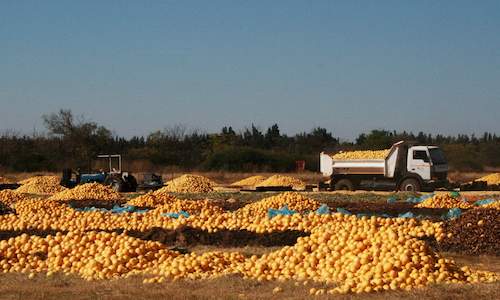
It adds organic matter as fuel for soil microbes, nutrients for the plant into the soil and it improves soil tilth - the physical condition ...
more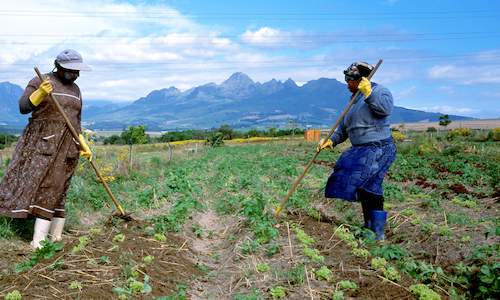
Fertilizers are materials that are either organic and from natural matter that was once living or a synthetic chemical makeup of macro and m...
more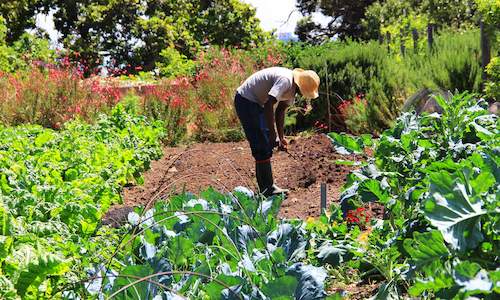
Growing awareness over the importance of a healthy soil, has resulted in, a growing number of farmers making use of conservation farming pra...
more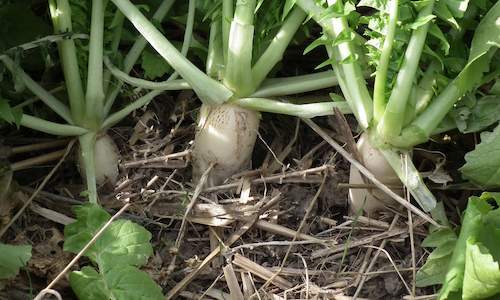
Soil texture is determined by the combination of sand, silt and clay particles. Sandy soils have large particles, are coarse-textured and re...
more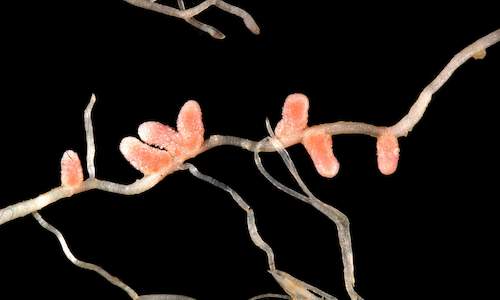
Microorganisms, as the first form of life on earth, made life possible through the production of oxygen and are essential for many other pro...
more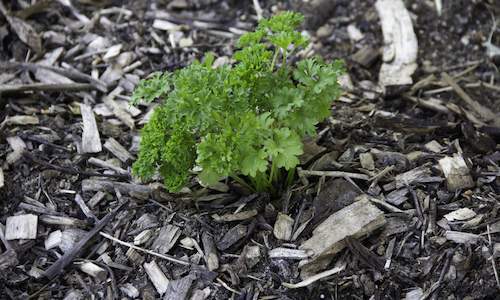
The use of mulch in a garden or on a farm can greatly benefit the overall health of the soil and crops. Mulched soils have fewer weeds, are ...
more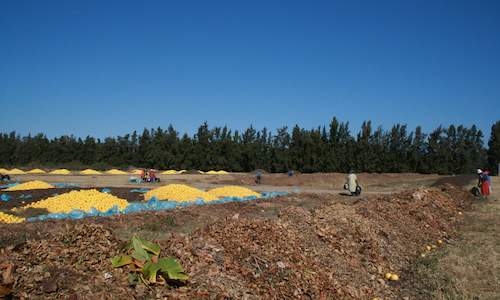
Organic Fertilizers are made up of decomposed material originating from living organisms. Inorganic Fertilizers or chemical fertilizers are ...
more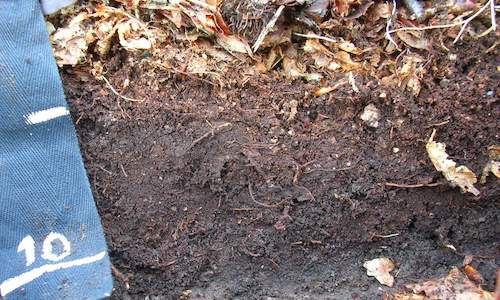
Organic matter will break down over time and supply the energy microorganisms need to further break down organic matter, which in the end wi...
more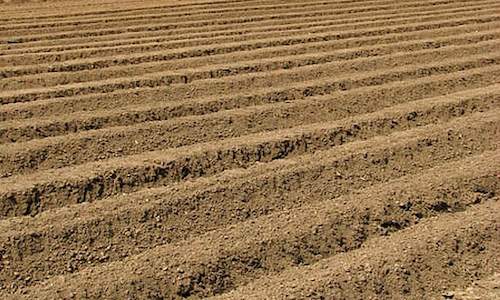
There is a direct relationship between soil health and plant health, explains Alan Rosenberg in his book Global Health in Crisis - the answe...
more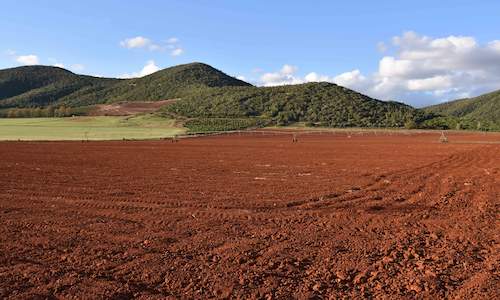
Taking soil samples of the area to be cultivated and having these analysed is the most important starting point of any horticultural enterpr...
more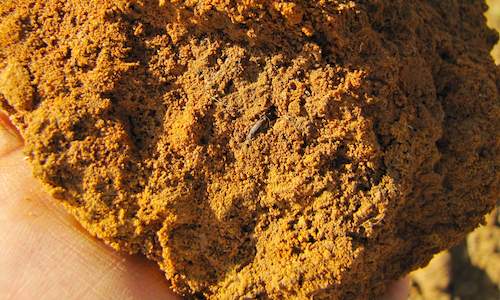
Soil texture has an effect on soil fertility, influences compaction and crusting of the soil and workability - the ease with which soil can ...
more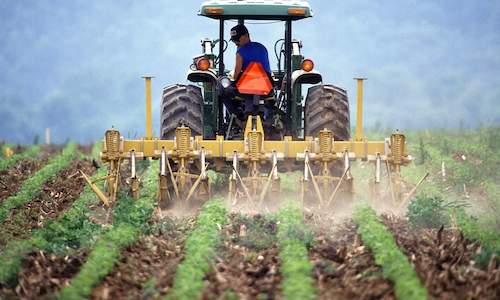
The true meaning of tillage refers to any preparation of the soil that is to be cultivated. Ploughing is the manipulation or turning of the ...
more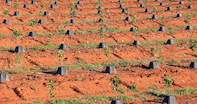
 It adds organic matter as fuel for soil microbes, nutrients for the plant into the soil and it improves soil tilth - the physical condition ...
It adds organic matter as fuel for soil microbes, nutrients for the plant into the soil and it improves soil tilth - the physical condition ... Fertilizers are materials that are either organic and from natural matter that was once living or a synthetic chemical makeup of macro and m...
Fertilizers are materials that are either organic and from natural matter that was once living or a synthetic chemical makeup of macro and m... Growing awareness over the importance of a healthy soil, has resulted in, a growing number of farmers making use of conservation farming pra...
Growing awareness over the importance of a healthy soil, has resulted in, a growing number of farmers making use of conservation farming pra... Soil texture is determined by the combination of sand, silt and clay particles. Sandy soils have large particles, are coarse-textured and re...
Soil texture is determined by the combination of sand, silt and clay particles. Sandy soils have large particles, are coarse-textured and re... Microorganisms, as the first form of life on earth, made life possible through the production of oxygen and are essential for many other pro...
Microorganisms, as the first form of life on earth, made life possible through the production of oxygen and are essential for many other pro... The use of mulch in a garden or on a farm can greatly benefit the overall health of the soil and crops. Mulched soils have fewer weeds, are ...
The use of mulch in a garden or on a farm can greatly benefit the overall health of the soil and crops. Mulched soils have fewer weeds, are ... Organic Fertilizers are made up of decomposed material originating from living organisms. Inorganic Fertilizers or chemical fertilizers are ...
Organic Fertilizers are made up of decomposed material originating from living organisms. Inorganic Fertilizers or chemical fertilizers are ... Organic matter will break down over time and supply the energy microorganisms need to further break down organic matter, which in the end wi...
Organic matter will break down over time and supply the energy microorganisms need to further break down organic matter, which in the end wi... There is a direct relationship between soil health and plant health, explains Alan Rosenberg in his book Global Health in Crisis - the answe...
There is a direct relationship between soil health and plant health, explains Alan Rosenberg in his book Global Health in Crisis - the answe... Taking soil samples of the area to be cultivated and having these analysed is the most important starting point of any horticultural enterpr...
Taking soil samples of the area to be cultivated and having these analysed is the most important starting point of any horticultural enterpr... Soil texture has an effect on soil fertility, influences compaction and crusting of the soil and workability - the ease with which soil can ...
Soil texture has an effect on soil fertility, influences compaction and crusting of the soil and workability - the ease with which soil can ... The true meaning of tillage refers to any preparation of the soil that is to be cultivated. Ploughing is the manipulation or turning of the ...
The true meaning of tillage refers to any preparation of the soil that is to be cultivated. Ploughing is the manipulation or turning of the ...